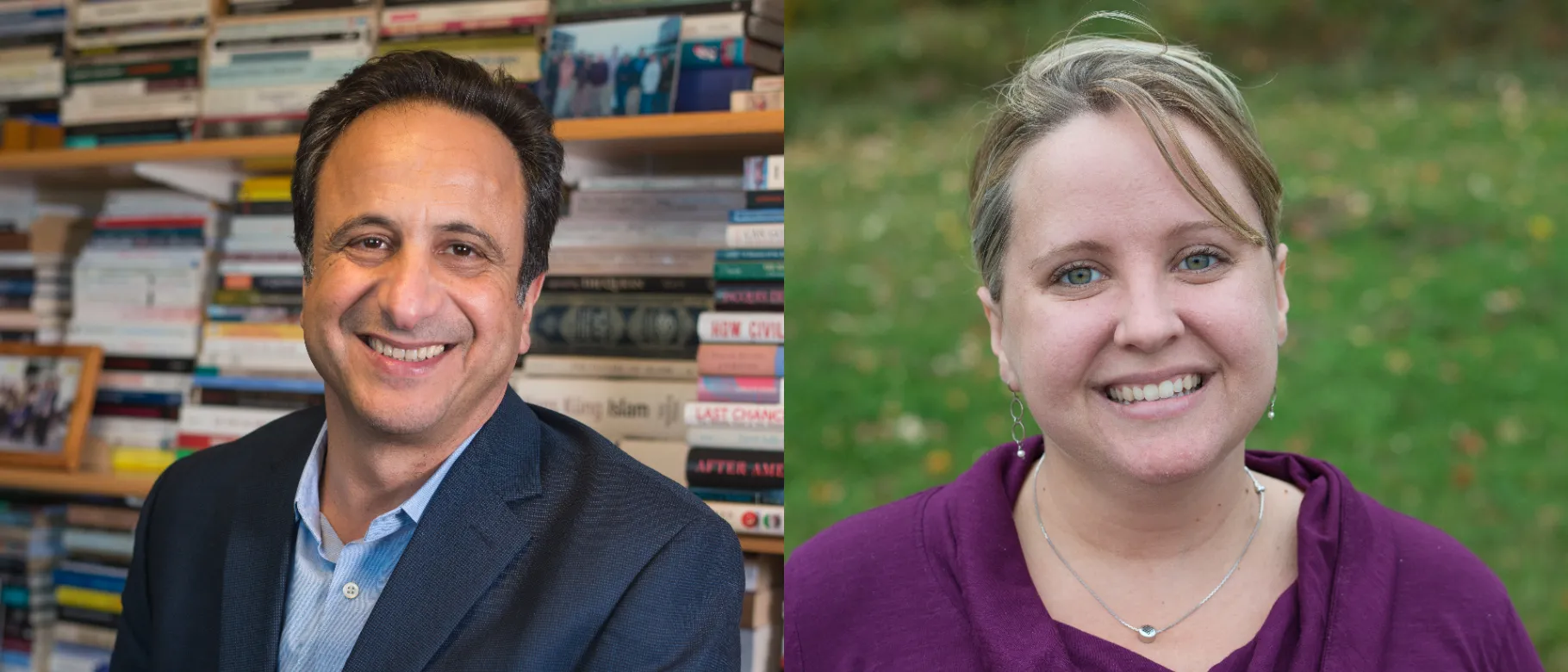UNE virtually hosts third annual Moroccan occupational therapy conference

The University of New England hosted the 3rd Annual Conference of the Occupational Therapy Association of Morocco (OTAM) at its campus in Tangier, Morocco, on Saturday, March 20.
The conference — held virtually because of the COVID-19 pandemic — attracted academic leaders and occupational therapy (OT) professionals from around the world for a day of learning and collaboration in support of OTAM, the Moroccan national professional association of occupational therapy practitioners and students.
OTAM was established in 2016 to promote interests of the occupational therapy profession and improve health care in Morocco, where occupational therapy is relatively new.
This year’s conference addressed the theme “Addressing the Need of Physical and Mental Rehabilitation During and Post Pandemic: Turning Challenges into Opportunities,” during which participants discussed the ever-growing need for qualified professionals to provide physical and mental health rehabilitation for patients in need during and after the COVID-19 pandemic.
Global presenters spoke about the occupational needs of those struggling with mental health issues and other disabilities amid the COVID-19 pandemic; the impact on student clinical site placements because of the pandemic; and the roles of OT intervention in times of COVID-19.
Non-COVID-19 topics were also discussed.
Notably, the conference included a presentation by Caroline Beals, M.S., OTR/L, assistant professor of occupational therapy at UNE, who discussed the narrative of concussion diagnosis and recovery.
In her presentation, Beals acknowledged that total rest, the most commonly prescribed treatment for a concussion — also known as a mild traumatic brain injury (mTBI) — is important for recovery but ignores a patient’s occupational engagement, or how one engages in their meaningful day-to-day activities.
In fact, citing multiple studies, Beals argued that total rest can actually prolong mTBI symptoms and can increase instances of isolation-related depression and occupational deprivation.
“It is important to reflect on what parts of this narrative are supporting occupational engagement and what parts of this narrative might actually create a bleak picture for people recovering from concussion,” Beals said remotely via Zoom.
Consistent with emerging literature on the matter, Beals offered a more holistic approach for concussion treatment that is client-centered, occupation-based, and engagement focused and which prioritizes interdisciplinary coaching and strategic rest to minimize symptoms and promote healing. Rather than complete rest, Beals’ recommendations called for patients to engage in “strategic rest,” or a gradual return to activities following a concussion.
“Adopting strategic rest is a really important way to support occupational engagement following a concussion,” as a way to give clients a sense of fulfillment, she said.
The hours-long conference, streamed to Facebook Live, kicked off with a brief introduction by Anouar Majid, Ph.D., UNE’s vice president for Global Affairs and founding director of the Center for Global Humanities.
Majid introduced Said Nafai, O.T.D., M.S., OTR/L, CLT, a professor of occupational therapy at American International College and founder of occupational therapy in Morocco, whose longstanding partnership with UNE spearheaded the first OTAM conference in Tangier in 2019.
In addition, Majid welcomed all conference participants and attendees and said the past two successful conferences have set the stage for a meaningful third conference, despite its remote nature.
“This conference honors our campus in Tangier, our university, and our faculty and students in the OT department at UNE,” he said.
Kris Winston, Ph.D., OTR/L, FAOTA, associate professor of occupational therapy and director of UNE’s Master of Science in Occupational Therapy (M.S.O.T.) program, agreed, and said the conference allowed participants to gain a deeper understanding of how OT is practiced throughout the world.
“We are fortunate to have the opportunity to collaborate with Dr. Nafai and OTAM to promote occupational therapy in Morocco and around the globe,” Winston said. “This year’s virtual conference, with speakers from five different continents, offered a glimpse into global occupational therapy practice, and we are hopeful that we will be able to offer the 4th annual conference in Morocco in 2022.”